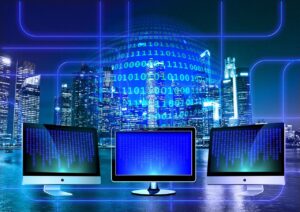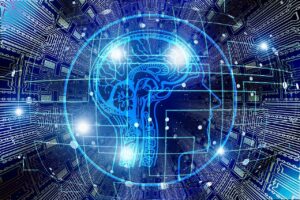In modern society, computers are necessary in various aspects of daily life. They play a vital role in governance, education, entertainment, etc., by enhancing productivity and efficiency. With the evolution of computer technology, numerous facets of the world have altered.
Types Of Computers At Present

In contrast to personal computers (PCs) or desktops, laptops are smaller and more portable. Many sectors now rely on these devices, including servers, mainframes, and wearable computers. These devices have turned out to be iconic technologies owing to their full-fledged computer capabilities. An emerging technology, quantum computing, uses quantum physics to perform computations. Its development may potentially lead to innovations in materials science, encryption, and medicine.
The Era Of Analog Computers
Computing started with the ancient water-driven tools used for irrigation, astronomy, and timekeeping. The development of the slide rule in the 17th century marked the beginning of mechanical calculators like Pascaline and Leibniz’s Stepped Reckoner. They used gears, wheels, and other mechanical components for calculations. These ancient devices laid the foundation for the evolution of computer technology in later years.
Analog computers are a line of computing devices that use fluctuating quantities to solve mathematical problems. The early to mid-1900s saw the emergence of these. Originating from ancient instruments like the abacus and astrolabe, they are widely used in engineering and military applications. These devices mimic real-world situations using analog signals, such as electrical voltages.
Charles Babbage‘s Analytical Engine in the 1830s established the fundamental ideas of programmable machines. A breakthrough in computing technology occurred with the creation of electrical analog computers during World War II. Vacuum tube computers like the Atanasoff-Berry Computer (ABC) signaled the shift from mechanical to electronic computing. Analog computing declined with the advent of digital computers. However, it continues to influence modern computer technology significantly.
Rise Of Digital Computers

The move toward digital computers from analog began in the 1940s! Transistors in 1947 revolutionized computers. They replaced vacuum tubes with smaller, more reliable electrical components.
In 1958, integrated circuits were developed by Jack Kilby and Robert Noyce. These allowed the integration of multiple transistors and other electrical components onto a single chip.
The Internet and World Wide Web in the 1990s made information sharing and browsing simpler. Mobile and cloud computing emerged in the 2000s. Advancements in wireless technology facilitated the widespread use of smartphones.
Various Discoveries Related To Quantum Computers
They handle difficult problems more quickly than classical computers. Significant progress has been achieved in quantum computing. Quantum error correction raises the dependability and precision of quantum computing. Quantum teleportation is a process that allows for the transfer of quantum states without altering their actual state. They enhanced secure communication and distributed computing.
Quantum computers are outperforming traditional computers in efficiency, indicating a constantly evolving future in computing. The evolution of computer technology has been facilitated by various advancements, including mechanical calculators, analytical engines, PCs, and quantum computers.



